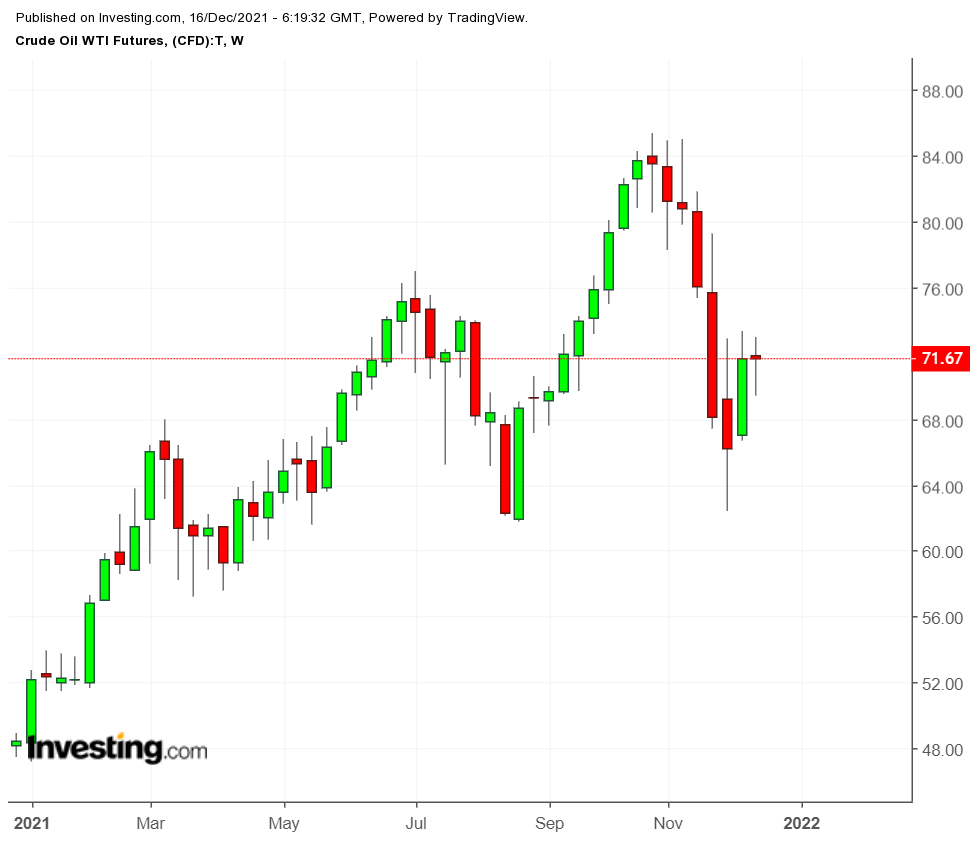As the end of the year approaches, it's inflation that's become one of the biggest, immediate stories for the global economy. Though COVID-related issues are still the talk around the oil market, for traders it is perhaps more critical to understand how inflation—and the fear of hotter inflation—will impact oil price moves up or down.

Despite COVID cases on the rise once again due to the Omicron variant, and notwithstanding its potential impact on the economy and travel, inflation may be an offsetting (and maybe dominant) upward force on oil prices.
According to the consumer price index (CPI), inflation for 2021 in the United States is currently 6.8%, the fastest increase in inflation since June 1982. According to the producer price index, wholesale prices have grown at an even higher rate—9.6%.
Inflation is such a growing concern that even the United States Federal Reserve has gotten spooked, announcing on Wednesday that it plans to raise interest rates in 2022.
When inflation rises, there is corresponding upward force on the price of oil. Oil producers are facing higher costs for everything from labor to transportation to parts. In addition, the value of the dollar that they get for selling oil has also declined. Therefore, the desire to sell each barrel of oil for more dollars increases, creating an upward pressure on the price of oil.
I’ve written about inflation in this column before, especially last winter and spring as signs of inflation were growing. In March, after the U.S. government had approved $4.8 trillion in stimulus spending, I warned about the potential for devaluation of the dollar. When this occurs, there is more pressure for non-US producers to sell their oil for higher dollar prices, because they want to maintain the value of the prices once converted to their own currencies.
Remember that oil isn’t just a speculative commodity that is traded on the exchanges. There are actual producers who sign contracts to sell oil to refineries. In 2022, they will need higher prices than ever before just to achieve the same value as they had before.
As 2021 comes to a close and 2022 begins, COVID and the related restrictions still present an uncertain economic landscape. There are concerns over what kind of threat the Omicron variant presents, the potential for continued or increased travel restrictions, shutdowns at major American universities, and protests throughout Europe.
Some analysts are warning that oil prices could plunge back into the $50s or $40s, particularly after the Black Friday sell off near the end of November. But it is important for traders to remember that this isn’t 2020 all over again. 2022 will be different from 2020 in part because we have already been through the COVID hysteria.
More importantly, though, 2022 will be different from past years because today the oil market is facing extreme inflation and potentially higher inflation to come. That means the oil market is facing a significant force pushing prices up, or at least keeping them from falling too far.
